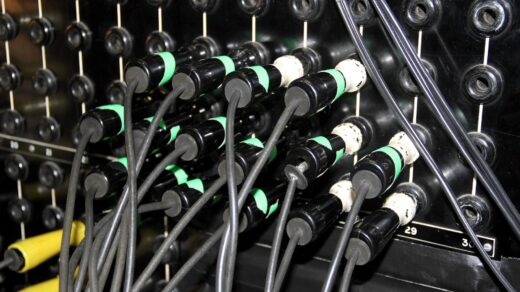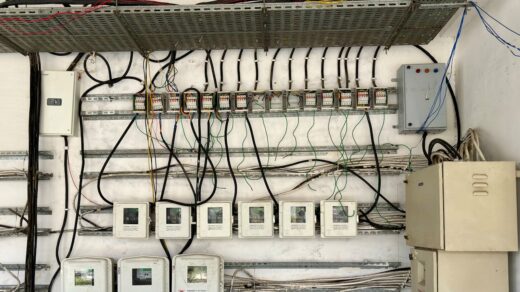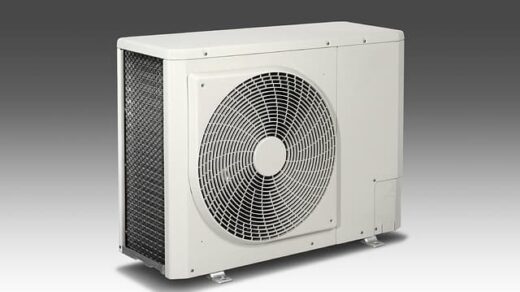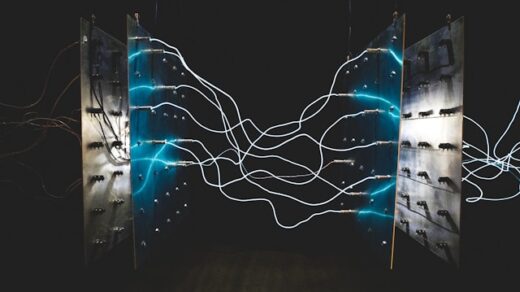Imagine you’re in the middle of cooking a delicious meal or watching an exciting movie, and suddenly, darkness engulfs everything. The power is out! One of the most nagging questions that follow is, “How long will this last?” Today, we’ll shed some light on this electrifying query!
The Common Causes of Power Outages:
Natural Disasters
Mother nature can be unpredictable. Storms, hurricanes, floods, and other severe weather conditions often lead to power outages.
Equipment Failures
Like any other machinery, electrical equipment can wear out or malfunction.
Human Error
Accidental digging near underground cables or other mishaps can disrupt the power supply.
Scheduled Maintenance
Sometimes, power companies might need to perform routine maintenance, resulting in temporary outages.
High Power Demand
Excessive demand can strain the power grid, leading to outages.
Factors Influencing the Duration of Power Outages:
- Severity of the Cause: A blown transformer might be fixed quicker than the damages caused by a massive hurricane;
- Preparation of Power Companies: Utility companies that are well-prepared can restore power more rapidly;
- Infrastructure Age: Older infrastructure might take longer to repair compared to newer setups;
- Population Density: Urban areas might have power restored faster than remote or rural locations;
- Availability of Repair Crews: Sometimes, multiple areas might be affected, stretching the resources of repair teams thin.
Average Duration of Power Outages:
Based on the data from recent years, the median duration of power outages in the U.S. is:
- Weather-related: 4 to 6 hours;
- Equipment failures: 1 to 3 hours;
- Scheduled maintenance: As informed by power companies (typically a few hours).
Of course, these are just averages. Some outages may last several days, especially in the wake of major natural disasters.
How to Prepare for a Power Outage:
- Stay Informed: Sign up for alerts from your local power company;
- Emergency Kit: Always have an emergency kit ready. It should include flashlights, candles, matches, a portable charger, and necessary medications;
- Food: Stock non-perishable food items that can be consumed without cooking;
- Water: Store enough water for each member of your family for at least three days;
- Backup Power: Consider investing in a generator or a solar power backup system.
Preventing Long Durations:
The responsibility isn’t just on the shoulders of power companies. We, as consumers, can play our part:
- Reduce Consumption: Especially during peak hours, try to use fewer heavy electrical appliances;
- Stay Updated: Understand and respect safety guidelines to prevent accidental disruptions;
- Community Involvement: Support initiatives to upgrade local power infrastructure.

The Psychological Impact of Power Outages
Power outages are not just about sitting in the dark or being unable to charge your devices. There’s a deeper psychological dimension that often gets overlooked.
Stress and Anxiety
For many, an unexpected power outage can trigger significant stress and anxiety. Not knowing how long the outage will last, worrying about food spoiling in the fridge, or simply being cut off from sources of entertainment and communication can be daunting. Parents might find it challenging to keep their kids calm and entertained. Moreover, those who work from home might be stressed about missing deadlines or important virtual meetings.
Safety Concerns
When the lights go out, especially at night, there’s an innate feeling of vulnerability. Homes are plunged into darkness, street lights go out, and alarms systems might be rendered ineffective. This can lead to concerns about personal safety, as well as the safety of properties. People might be more apprehensive about potential break-ins or even accidents at home in the dark.
The Silver Lining – Community Bonding
However, it’s not all gloom and doom. Many communities come together during power outages. Neighbors might share resources, hold joint candle-lit dinners, or even gather to share stories. Such moments can create a unique bonding experience, reminding individuals of the inherent human connection and the importance of community support during challenging times.
Economic Repercussions of Power Outages
It’s undeniable that power outages have far-reaching economic implications, affecting both businesses and consumers.
Business Operations
For businesses, a power outage can halt operations instantly. Retail stores might have to close, leading to lost sales. Manufacturing units could face production delays, especially if machinery is affected by sudden shutdowns. Tech companies or those reliant on the internet might face disruptions, potentially leading to significant financial losses.
Perishable Goods
Businesses dealing in perishable goods, such as restaurants or grocery stores, can suffer massive losses. Without refrigeration, these goods can spoil, leading to wasted inventory and potential health hazards if unknowingly consumed.
Transportation and Logistics
Power outages can disrupt transportation systems, especially if traffic lights are out or electric transport modes are halted. This can delay deliveries, affect supply chains, and even lead to increased road accidents due to non-functional traffic systems.
Consumer Spending
On the consumer front, prolonged power outages might lead to increased spending. People might have to dine out if they can’t cook at home, buy new groceries to replace spoiled ones, or even spend on alternative power sources like generators.
Compensation and Repair Costs
Utility companies might face expenses in terms of compensations, fines, or repair costs post an outage. Moreover, they might need to invest more in infrastructure to prevent future outages, leading to further economic strain.
Impact on Health and Medical Facilities
Power outages can pose serious health risks, particularly when they affect medical facilities. The reliance on electricity in modern healthcare is evident, and an outage can have dire consequences.
Life-Saving Equipment
Medical facilities house crucial life-saving equipment, from respirators to heart monitors, all of which need a steady power supply. An unexpected power cut can jeopardize the lives of critical patients. While many hospitals have backup generators, there’s always a risk of them failing or not kicking in immediately.
Storage of Medicines and Vaccines
Many medicines and vaccines need to be stored at specific temperatures. A power outage can disrupt refrigeration, leading to the spoiling of these essential items. This not only results in financial loss but can also lead to a shortage of crucial medicines.
Emergency Services
During power outages, there’s often a surge in emergency calls, from accidents in the dark to health issues arising from the lack of power. This can strain emergency services and medical facilities.
Checklist for Medical Preparedness during Power Outages
- Backup generator with routine checks;
- Emergency lighting system in crucial areas;
- Stockpile of essential, non-electric medical equipment;
- Manual record-keeping provisions in case electronic systems fail;
- Training for staff to handle power outage emergencies.

Technological Solutions to Combat Power Outages:
As technology advances, there are several solutions emerging that aim to either prevent power outages or reduce their impact.
Smart Grids
Smart grids use digital technology to detect issues in the grid and reroute power when necessary. This not only reduces the chances of outages but can also ensure quicker restoration of power.
Home Energy Storage
Homeowners are now looking into energy storage solutions. For instance, battery storage systems, when combined with solar panels, can provide households with power during outages.
Demand Response Programs
These programs involve consumers agreeing to cut their energy use during peak times in return for discounted rates. This can reduce the strain on the grid, lowering the chances of outages.
Popular Energy Backup Solutions
| Solution | Pros | Cons |
|---|---|---|
| Diesel Generators | High power, Reliable | Noisy, Polluting |
| Battery Storage | Sustainable, Quiet | Limited capacity |
| Solar Panels | Renewable, Reduces electricity bill | Dependent on weather |
The Environmental Ramifications of Power Outages:
While it may not be immediately obvious, power outages can have significant environmental implications.
Wastage of Resources
When power is suddenly cut, especially in industries, there might be wastage of resources. For instance, an assembly line might have to discard products midway through processing.
Increased Use of Generators
Many turn to diesel or gasoline-powered generators during outages. These not only contribute to air pollution but also result in higher carbon emissions.
Food Wastage
In homes and businesses, perishable food items might spoil, leading to increased wastage. This not only impacts the economy but also results in more waste heading to landfills.
List of Green Alternatives during Power Outages:
- Solar-powered lanterns and flashlights;
- Hand-cranked devices, eliminating the need for batteries;
- Energy-efficient appliances that can run longer on backup power;
- Using natural light and ventilation to reduce the need for artificial lighting and cooling.
While power outages are often seen as an inconvenience or economic burden, understanding their broader implications can lead to better preparedness and more sustainable choices.
Conclusion
While it’s impossible to predict exactly how long a power outage will last, understanding the factors influencing its duration can offer some peace of mind. Being prepared and proactive can not only help you navigate the darkness with ease but can also play a part in reducing the duration of power outages.
Frequently Asked Questions
The longest recorded power outage lasted several weeks due to a catastrophic event like a hurricane.
They can provide estimates based on the cause and severity, but exact times are challenging to predict.
Most power companies offer SMS or email alert services for their customers.
It’s possible, especially due to power surges. Using surge protectors can help safeguard your appliances.
It’s a good practice to check your emergency kit at least once every six months.







